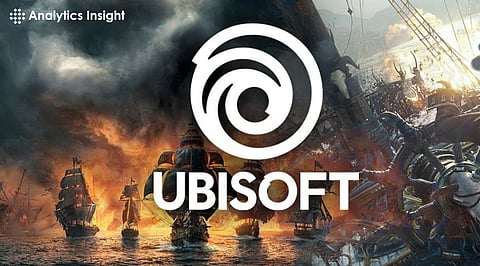Icon-Free Gaming: A Deep Dive Into Ubisoft’s New Approach
Introduction
The latest design trend of icon-free gaming by Ubisoft is the first step toward an open-world gaming pioneer, recently gaining attention in the gaming world. For a company known for such high detail and vast game worlds, letting go of an interface full of icons marks a big change. This is hoped to enhance the reader's immersion, give people the freedom to appreciate gameplay, and rediscover some old-school fun in its place with this new approach.
What is Icon-Free Gaming?
Icon-free gaming eliminates on-screen markers, icons, and guides from the player who is accustomed to modern open-world games. The traditional icons show the objectives, missions, collectibles, and points of interest guiding the player. In this regard, an icon-free system by Ubisoft makes players rely more on the environment presented in the game, clues, and natural discovery rather than path-following for icons.
This system, already used in some of Ubisoft's titles, is a shift in the basic way that a player interacts with the game world. It makes the player more attentive, hence increasing the realism and challenge the game exudes. It forces gamers not to rely on constant on-screen prompts but rather interact more with the environment, thus making exploration organic and less predictable.
Why Ubisoft is Getting Away from Icons
In the background of wanting to provide an enhanced, enriched experience, the icon-free model is resolved upon. Long ago enough, the open-world game players and critics have complained that the genre is more largely affected when icon-heavy usage reigns. It makes them feel that they are not explorers at all but rather checklist items to be filled up according to the dictates of the game from the game interface.
Recognizing this, Ubisoft began researching how they could strike a better balance between guidance and freedom. In eradicating the icons, the firm is trying to recreate the same sense of discovering something new which players are responsible for finding the clues and the landmarks in order to move on instead of aimlessly wandering by waypoints. It aligns so well with shifting expectations of gamers toward a more immersed experience.
How Icon-Free Gaming Improves Immersion
Modern gaming includes a lot of features like immersion. It is against this background that the no-icon approach has been developed to improve these experiences further for users. The users can focus a lot on the playing environment and how to navigate in this environment. Having lots of cues in a playing world does end up making much immersion in the same world.
Players will not go in search of some hidden treasure based on a following icon, but perhaps will have to listen to an NPC conversation or take a glimpse at minute environmental details that could reveal something secret. Such activities lead to a more involving depth since a player would interact with the world much more purposefully. If icons are removed to guide discovery in a game, then any unexpected discovery found becomes less scripty and is that much more unique.
Impact on the Experience for Gamers
The change to iconless gaming is intense in terms of how the whole experience of playing is impacted. It plays an added challenge for one has to think critically and pay attention to the environment in the matters of concern. This might be more appealing to those who prefer a more immersive and less hand-holding approach to their gameplay.
But perhaps not everyone would be so pleased with the change. Casual gamers would find it less exciting and not so pleasing without icons as they would be more frustrating and disoriented more so within a bigger game world. Ubisoft may have to figure out how to balance both approaches. And maybe they offer options for tastes of all kinds. After all, a new frontier had been opened where players can relate to virtual worlds without icons.
Conclusion
It's a new bold direction in game design by Ubisoft, where there are no markers or icons on screen. That's basically about immersion, exploration, and the autonomy of the player. This approach will make the player think and explore deeper because he will be making his own path instead of following waypoints that are predefined. Perhaps not everybody would like icon-free gaming, but to those who have a taste for more involvement and challenge, this might redefine how open-world games are played completely: more dynamic and organic experiences of gameplay.
.png)

